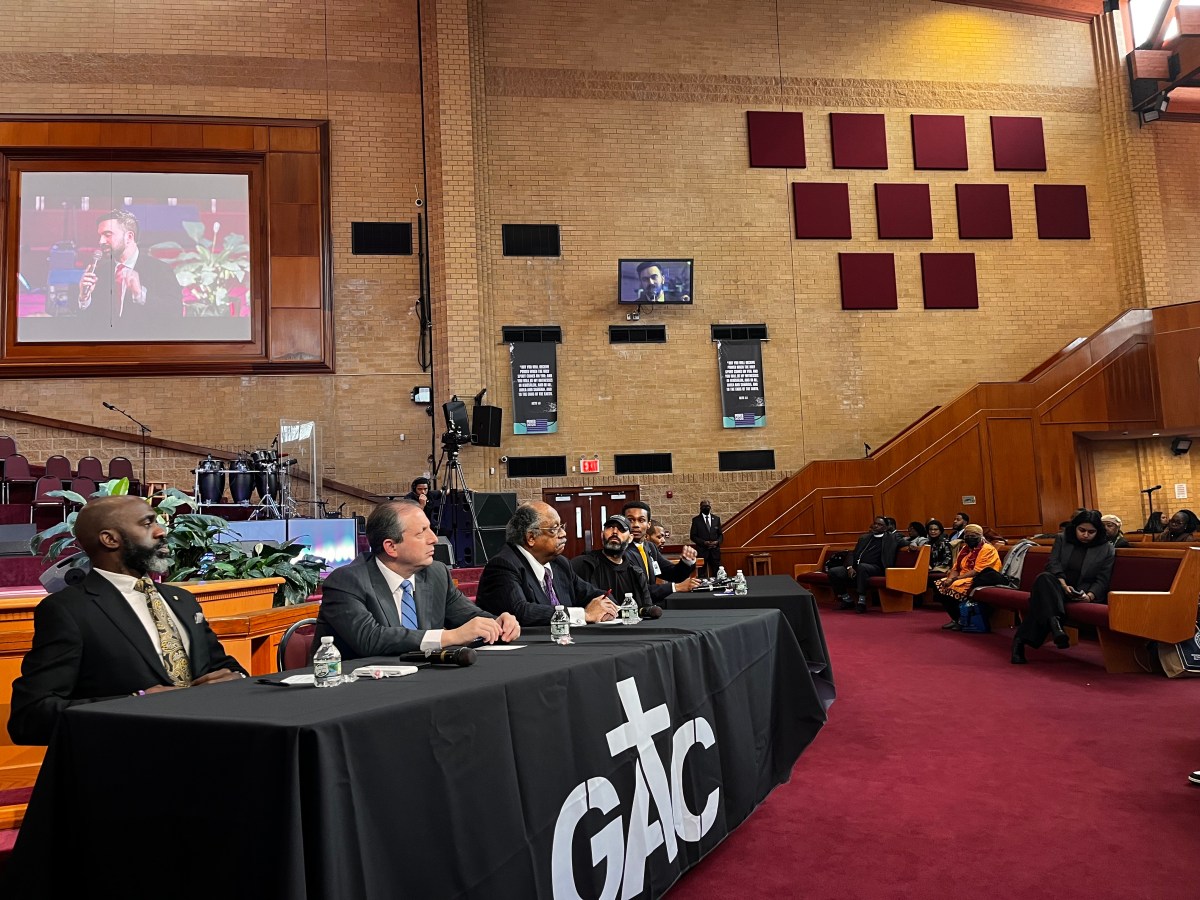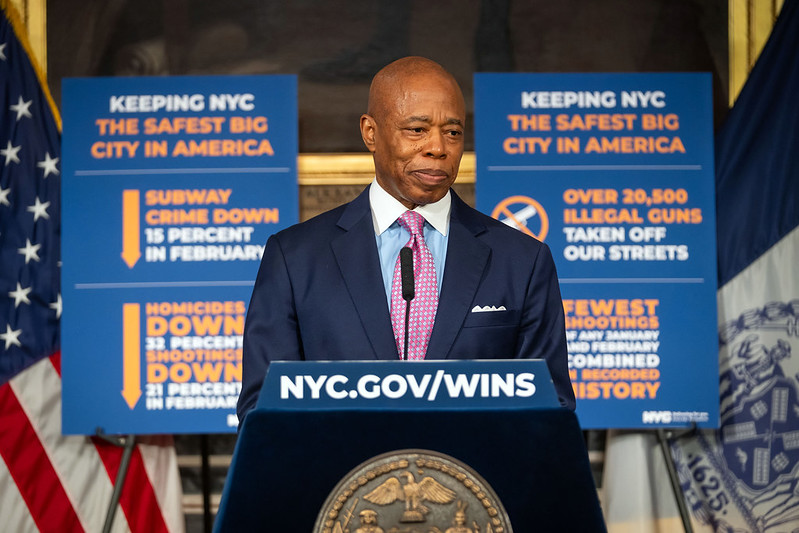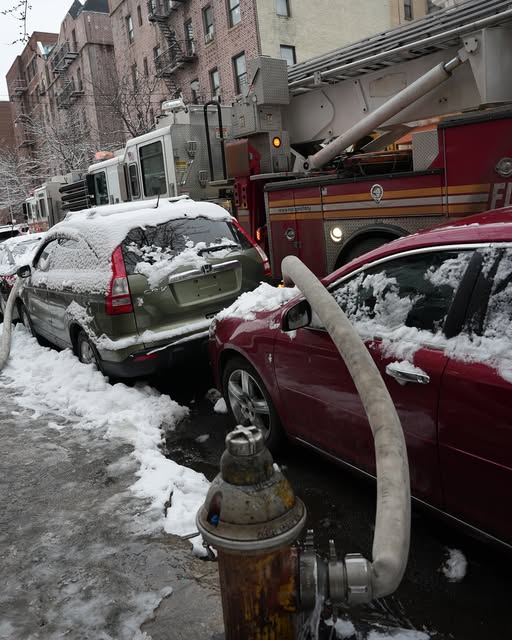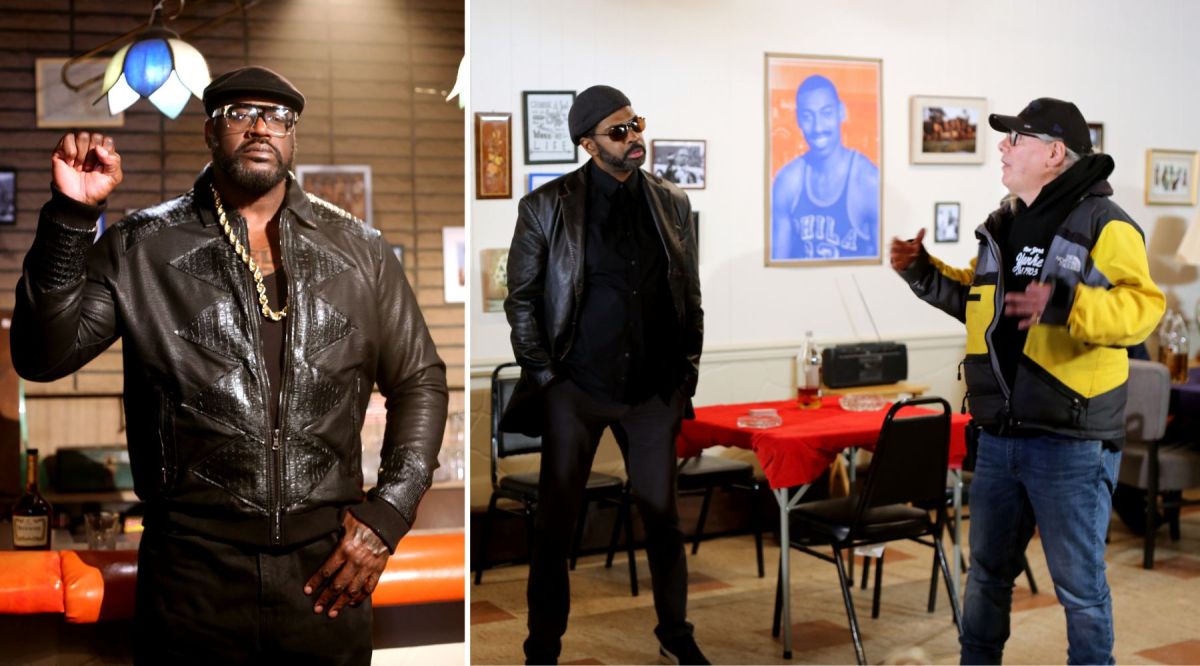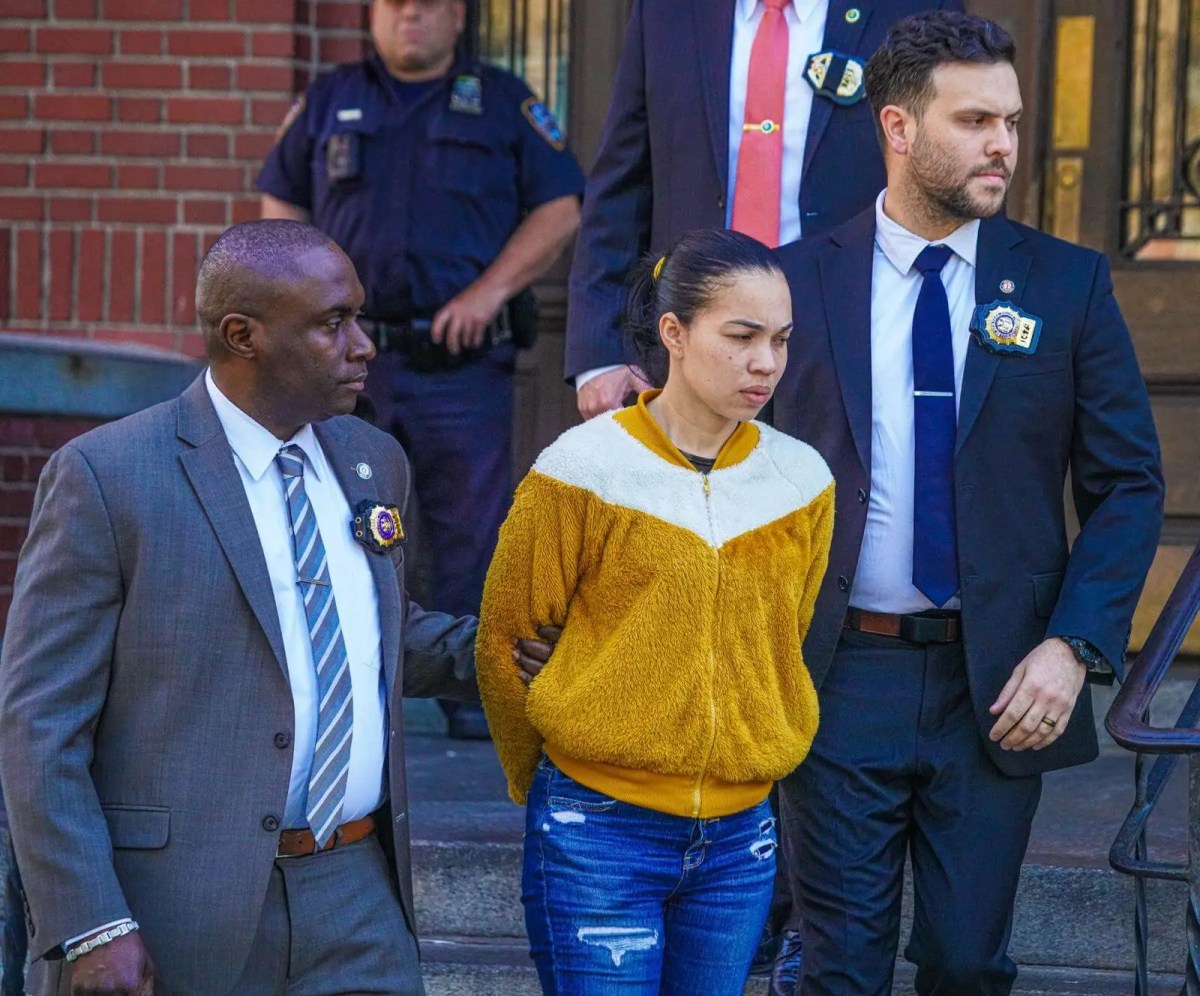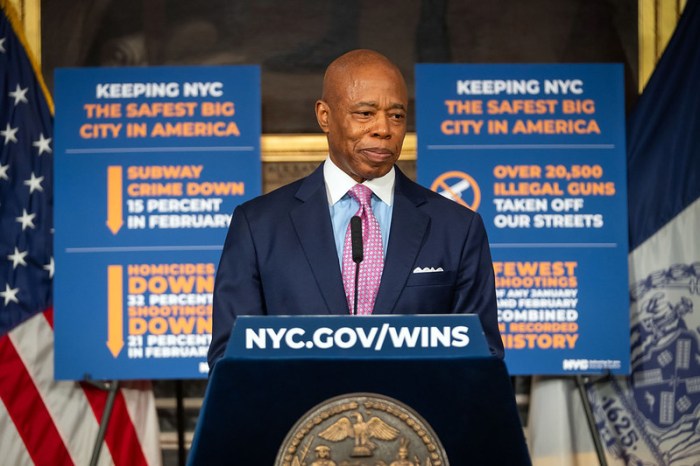City Council’s Public Safety Committee weighed the gravity of passing police reform bills that would ban chokeholds entirely, something Speaker Corey Johnson says is about six years too late after the 2014 death of Eric Garner.
But if the legislation is timely, it has been made so by protests across the country following the death of George Floyd in Minneapolis 16 days ago and rocked the city with masses of demonstrations and riots.
But in the minds of some lawmakers such as Councilman Donovan Richards, the question of why police came down so hard on protesters in the last week was something he demanded more than a vague, or “canned,” political answer from Mayor Bill de Blasio on what he viewed as an inappropriate handling of the protests.
“When we ask about the police crackdown on protesters, we are not asking about the police crackdown on looters. Stop trying to convolute the conversation,” Richards said in a message directed to de Blasio. “I like everyone else condemn any looting going on, looters are taking away from the movement we are trying to build. But by focusing on them when you should be focusing on what protesters want, you are squandering the opportunity to truly effectuate the change you promised seven years ago and have not brought about.”
One way in which the protests have been seen as inappropriate was by “kettling” demonstrators within intersections and charging with nightsticks as seen on May 29 on 13th Street and Broadway. While looting was extensive as hundreds marched up Broadway from Canal, protesters went down on their knees with hands up before being rushed by NYPD.
Johnson condemned the de Blasio administration’s lack of action in addressing police brutality and protecting records on police misconduct, and put his support behind bills such as 60-A. An antidote to the controversial 50-A, this bill will mandate that authorities post online complaints against the police department and individual officers for misconduct.
Information from the Civilian Complaint Review Board and NYPD would be pooled in one place for the public.
“We can’t let this moment pass the same way we have done over and over and over again,” Johnson said. “This is a Democratic town in a Democratic state. The fact that we have not delivered any change is inexcusable, it’s shameful and I think every single white Democrat in New York City has contributed to it. Either through silence or inaction.
Intro. 6267 will address an issue seem in photos and video over the course of the last week and a half of protests in which NYPD members have been seen covering their badge number with mourning bands, tape and other materials, which is a violation of the department’s patrol guide, as pointed out by Councilwoman Alicka Ampry-Samuel during the hearing. This bill will make it mandatory for badge numbers to visible at all times, and during protests in particular.
Chokeholds may not only be banned in New York City; Albany passed it own chokehold ban on Monday.
The Eric Garner Anti-Chokehold Act made it through the assembly with only five Republican members of the legislative body voting against it. They include Assemblymembers David DiPietro, Christopher Friend, Kieran Lalor, Peter Lawrence, Mike LiPetri, Gary Finch, David Gantt and Robin Schimminger.
Mayor Bill de Blasio, known for shielding officers through 50-A, has advocated for Albany to repeal the law that obscures the misconduct records of cops from the public. Governor Andrew Cuomo, who also backs its repeal, said during a Monday press conference that the law does not have as much weight as the de Blasio administration has claimed.
According to Cuomo, 50-A has been in place for decades and the de Blasio administration may use it as an excuse more than some other mayoral administrations.
When speaking of the proposed chokehold ban last week, Johnson was confident it would pass with a veto-proof majority.






